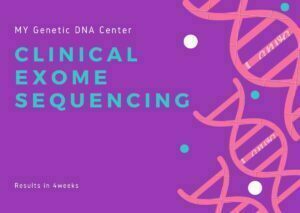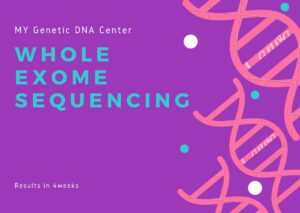INTRODUCTION TO HELICOBACTER PYLORI ANTIGEN RAPID, STOOL:
The Helicobacter pylori Antigen Rapid Stool test detects Helicobacter pylori bacteria in stool samples using a non-invasive method. This spiral-shaped bacterium colonizes the stomach lining and causes chronic gastritis, peptic ulcers, and contributes to the development of gastric cancer and mucosa-associated lymphoid tissue (MALT) lymphoma. This rapid test identifies specific bacterial antigens shed in the stool, indicating an active infection within the gastrointestinal tract. Unlike blood antibody tests, which can only indicate past exposure, the stool antigen test directly reflects current infection status, making it highly valuable for both initial diagnosis and post-treatment monitoring to confirm eradication.
The test is convenient, quick, and does not require invasive procedures such as endoscopy, making it especially suitable for a wide range of patients, including children. To ensure accuracy, doctors usually advise patients to avoid antibiotics, proton pump inhibitors, and bismuth compounds before testing, as these medications suppress bacterial load and affect results. By detecting active infection rapidly and reliably, this stool antigen test aids healthcare providers in making timely decisions for appropriate treatment, ultimately helping to reduce complications associated with untreated H. pylori infection.
What is the Helicobacter pylori antigen rapid stool test?
The test is valued for its non-invasive nature, rapid results, and convenience, avoiding the need for more invasive procedures like endoscopy. Healthcare providers often recommend this test when patients present symptoms such as persistent stomach pain, indigestion, or unexplained gastrointestinal distress. To improve accuracy, patients are generally advised to avoid certain medications, such as antibiotics or acid-suppressing drugs, before testing, as these can reduce bacterial presence and potentially cause false-negative results. Overall, the Helicobacter pylori antigen rapid stool test plays a vital role in early detection and management of H. pylori infections, helping guide timely and effective treatment to prevent complications.
Why is this test done?
The Helicobacter pylori antigen rapid stool test is performed to detect an active H. pylori infection in the digestive tract, which is essential for diagnosing conditions such as gastritis, peptic ulcers, and related gastrointestinal disorders. Early identification of this bacterium allows healthcare providers to initiate appropriate treatment to eradicate the infection, thereby preventing complications like chronic inflammation, ulcer development, and even gastric cancer. This test is especially useful because it directly detects bacterial antigens in the stool, confirming ongoing infection rather than past exposure, which some other tests cannot distinguish.
Doctors also use this test to verify whether treatment has successfully eliminated the bacteria, ensuring that patients receive proper follow-up care. Additionally, since the test is non-invasive, it offers a patient-friendly alternative to more intrusive procedures like endoscopy, making it suitable for a wide range of patients, including children and those unable or unwilling to undergo invasive testing. By providing timely and accurate information about H. pylori status, this test helps guide effective management strategies and improves patient outcomes.
How is the stool sample collected?
To collect a stool sample for the Helicobacter pylori antigen rapid test, healthcare providers usually give the patient a clean, sterile container to collect a small portion of their bowel movement. Patients must avoid contaminating the sample with urine or water to maintain its integrity. They often collect the sample at home or in a medical facility, following specific instructions to handle it properly. Patients must promptly transfer the sample to the laboratory or refrigerate it if transport is delayed, as improper storage affects test accuracy. Healthcare providers may also advise avoiding certain medications, like antibiotics or proton pump inhibitors, before sample collection to prevent false-negative results. Clear instructions on hygiene and sample handling help ensure that the stool specimen remains uncontaminated and suitable for reliable testing of H. pylori antigens.
Is any special preparation required before the test?
Before taking the Helicobacter pylori antigen rapid stool test, patients need to follow specific preparation guidelines to ensure accurate results.Doctors usually advise patients to avoid antibiotics, bismuth-containing medications, and proton pump inhibitors (PPIs) for at least two to four weeks before the test because these drugs can suppress or eliminate the bacteria, which may cause false-negative results. Additionally, patients should refrain from using antacids for a few days prior to sample collection. There is typically no requirement to fast or change diet before the test, but following the medication restrictions is crucial. Informing the healthcare provider about all current medications and supplements helps avoid interference with the test. Proper preparation enhances the reliability of the stool antigen test, allowing for accurate detection of active Helicobacter pylori infection.
How quickly are the results available?
The results of the Helicobacter pylori antigen rapid stool test are typically available within a few hours to a couple of days, depending on the laboratory’s processing times and workload. Because this test uses immunoassay techniques to detect bacterial antigens directly in the stool, it often provides faster results compared to more complex diagnostic methods like endoscopy or culture tests. In many clinical settings, rapid test kits can deliver preliminary findings within minutes to hours, enabling timely diagnosis and treatment decisions. However, if the sample requires transport to an external laboratory or additional confirmatory testing, the turnaround time may extend to one or two days. Patients and healthcare providers benefit from this relatively quick reporting, which supports prompt management of Helicobacter pylori infections and reduces the risk of complications.
How accurate is the test?
The Helicobacter pylori antigen rapid stool test detects active H. pylori infections with high accuracy, typically showing sensitivity and specificity rates between 85% and 95%. This means the test reliably identifies most infected individuals while minimizing false positives. Because it detects bacterial antigens directly in the stool, it reflects current infection rather than past exposure, which improves its diagnostic value compared to antibody blood tests. However, factors like recent use of antibiotics, proton pump inhibitors, or improper sample handling can affect accuracy and lead to false-negative results. To ensure reliable outcomes, healthcare providers recommend following pre-test preparations carefully and may confirm results with additional testing if necessary. Overall, this non-invasive test offers a trustworthy and convenient method for diagnosing H. pylori infection and monitoring treatment success.
Can this test detect past infections?
How does this test compare to other H. pylori tests?
The Helicobacter pylori antigen rapid stool test offers several advantages compared to other H. pylori diagnostic methods. Unlike blood antibody tests, which can remain positive long after the infection has cleared, the stool antigen test detects active infection by identifying bacterial proteins directly in the stool. It is non-invasive, unlike endoscopy with biopsy, which is more invasive, costly, and requires specialized equipment. Compared to the urea breath test, the stool antigen test is similarly accurate and easier to perform without special preparation or equipment. However, factors like recent antibiotic or proton pump inhibitor use can affect both tests’ accuracy. Overall, the stool antigen test provides a reliable, convenient, and cost-effective option for diagnosing active H. pylori infection and monitoring treatment success.
Can the test be used to confirm eradication after treatment?
Are there any limitations of the test?
Yes, the Helicobacter pylori antigen rapid stool test has some limitations. Recent use of antibiotics, proton pump inhibitors, or bismuth-containing medications can reduce bacterial load and cause false-negative results. Improper stool sample collection, storage, or handling may also affect test accuracy. Additionally, the test may miss low levels of bacterial antigens in rare cases, causing false negatives. While the test is highly reliable for active infection, it cannot identify past infections or distinguish between different H. pylori strains. Therefore, clinicians often interpret results alongside clinical symptoms and may use additional tests if needed to ensure accurate diagnosis and treatment monitoring.
Is the test suitable for children?
Yes, the Helicobacter pylori antigen rapid stool test is suitable for children. It is non-invasive, painless, and easy to perform, making it especially convenient for pediatric patients who may find other tests, like endoscopy or blood draws, more challenging. The test accurately detects active H. pylori infection in children, helping doctors diagnose and monitor treatment without causing discomfort. However, as with adults, recent antibiotic or acid-suppressing medication use can affect results, so proper preparation and timing are important for reliable outcomes in children.




